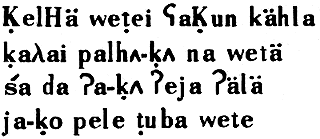I think there's been a revolution in this area, and the cycle may turn yet again.
The early 19C linguists were also philologists, and often folklorists. (Cf. the Brothers Grimm.) It didn't seem outlandish that syntax and rhetoric of a protolanguage could be reconstructed along with the words.
But then a more rigorous and concentrated style took over. The idea seemed to be that once you'd done the phonology and morphology, you were done. As I've mentioned, Whitney's great Sanskrit grammar has no syntax section, much less any consideration of rhetoric.
(Also, it seems that the linguists and the folklorists were no longer the same people. But an increase in specialization should not be mistaken for an increase in understanding.)
Yet linguistics has changed since that time. There's been over half a century's intensive work in syntax, plus excursions into semantics and pragmatics. (Not too much rhetoric, so far as I know.)
You're
not done if you haven't looked at syntax. You should be able to write a sentence in the language; otherwise you can hardly say you know how it works! Lehmann's
Theoretical Bases of Indo-European Linguistics has two chapters on syntax, and Lass covers morphosyntax, at least.
Of course, reliability goes way down in this area, mostly because there's so much less data. If you (say) look at two dozen syntactic facts, that's going to be far less convincing than looking at 500 words. But when historical linguists are happy to work on pre-proto-languages, or highly speculative cross-family reconstructions, they're obviously comfortable with a high number of stacked hypotheses.
In short: the feeling around 1900 may have been that Schleicher Went Too Far. (It's probably telling that no one dared to update the fable for 71 years.) But the idea isn't inherently risible, and it's certainly far less out on a limb than, say, later linguists' bold work on Proto-World.
FWIW, Schleicher's original intro recognizes the difficulty of the task, and says that it was done partly
animi causa, that is, for the fun of it. And quite a few modern IE-ists, bless them, have gotten in on the fun.
Theils um dazuthun, daßs, wenn such mit mühe, zusammenhangende sätze in indogermanischer ursprache gebildet werden können, theils animi causa, machte ich den versuch in dieser erschlossenen sprache einege zeilen zu schreiben. Mit übersetzungen glückte es mir nicht, so mußste ich denn wohl oder übel zu eigenem machwerke mich entschließsenden worten, vor allem aber der fast gänzliche mangel an partikeln, erschwert die bildung von sätzen in indogermanischer ursprache sehr. In der folgenden kleinen fabel habe ich mich, wie der leser leicht erkennt, drücken und schmiegen müssen, um die worte für das zu finden, was ich sagen wollte.
